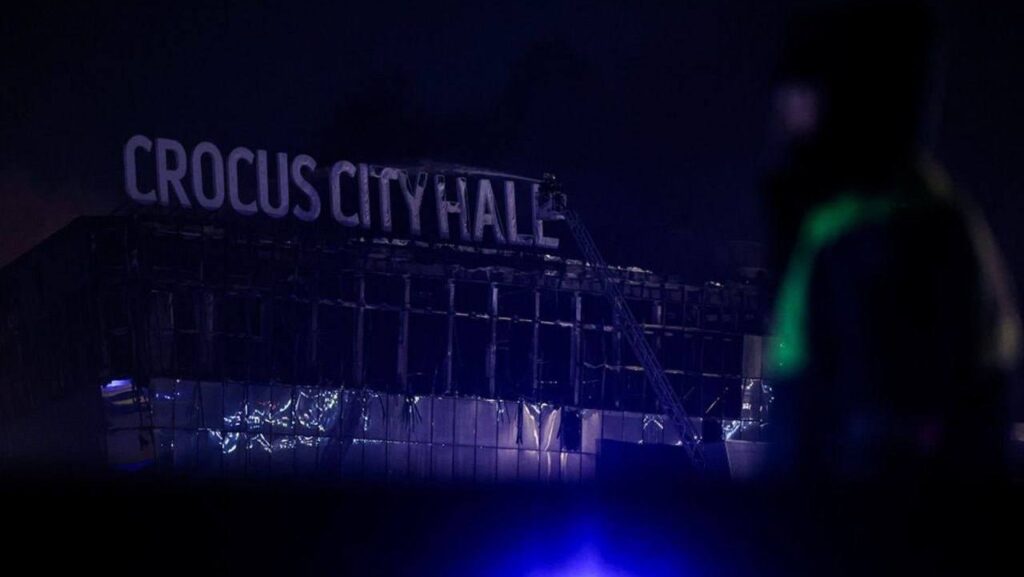FRESH AIR
What recent ISKP attacks reveal about US, Russian and Iranian intelligence agencies
March 27, 2024 | Oved Lobel

On March 7, the US and UK warned their citizens in Moscow to avoid large gatherings, “including concerts”, for 48 hours due to intelligence streams beginning in November that the Islamic State’s Khorasan Province (ISKP) in Afghanistan – currently the critical node for global Islamic State (IS) external operations – was preparing a major attack in the city. The US also directly warned the Kremlin.
It is possible that the public warning pushed back the date, but 15 days later, four ISKP operatives launched a horrific terrorist attack against concertgoers at Crocus City Hall in Moscow, slaughtering more than 130 and wounding well over 100 more. It was the deadliest terror attack in Russia in decades.
Two months prior, on January 3, ISKP conducted twin suicide bombings in Iran at the grave of former Islamic Revolutionary Guard Corps – Qods Force chief Qassem Soleimani during an event commemorating his death, killing more than 90 and wounding hundreds more, the worst terrorist attack in Iran’s post-1979 history. The US had intelligence that ISKP might be planning to bomb the memorial service and directly warned the Iranian regime prior to the attack.
Neither of these attacks reveals anything new about ISKP’s capabilities; for now, it remains a regional rather than global terrorism threat. ISKP reportedly planned 21 attacks in nine countries over the past year, though it’s unclear how concrete any of these foiled plots were. Its actual attacks, both local and regional, continue to decline.
The attacks in Russia and Iran do, however, reveal just how sophisticated US intelligence is compared to its adversaries.
In the first place, the fact that the US had specific intelligence about both these plots provides some vindication of the Biden Administration’s claim that “over-the-horizon” capabilities, including signals intelligence such as communications intercepts, would suffice to monitor the threat from Afghanistan after withdrawal.
Notably, unlike the US, both Iran and Russia have a presence on the ground in Afghanistan – the former also shares a large border with the country – and a close relationship with the Taliban regime, yet both were entirely blind to ISKP plots.
This is also a demonstration of the very different roles intelligence agencies play in Western countries as opposed to despotisms. In the former, the agencies exist in part to protect citizens from threats, while in the latter, they exist to protect the regime and to monitor, oppress, intimidate, kidnap or kill their own citizens domestically and abroad. Because of this remit and resource allocation, countries like Iran or Russia are not particularly capable of, or even very interested in, thwarting such attacks.
The pervasive fear among civilians following terrorist attacks is in fact extremely useful for autocratic regimes. Moreover, lying about the perpetrators, as Russia and Iran do, can help mobilise the population against enemies of the regime. Thus, Russia absurdly continues to accuse Ukraine of involvement in the Crocus City Hall massacre, while Iran blamed Israel and the US for the ISKP suicide bombings in January.
For these reasons, as well as crippling conspiratorialism, both Russia and Iran are likely to continue ignoring US warnings about imminent attacks. Consequently, their citizens will have a much higher risk of being killed by IS, despite the organisation’s general decline.
Tags: Afghanistan, Iran, ISIS, ISKP, Islamic State, Qassem Soleimani, Russia, Terrorism
RELATED ARTICLES

‘Optimism’ for Hamas to ‘exile’ their power and create a permanent ceasefire with Israel: Joel Burnie on Sky News

Australian government’s response to Iran-Israel conflict ‘disappointing’: Paul Rubenstein on Sky News

UNRWA feeds the ‘Palestinian delusion’ of no Jewish state: Dr Einat Wilf on Sky News




















